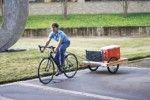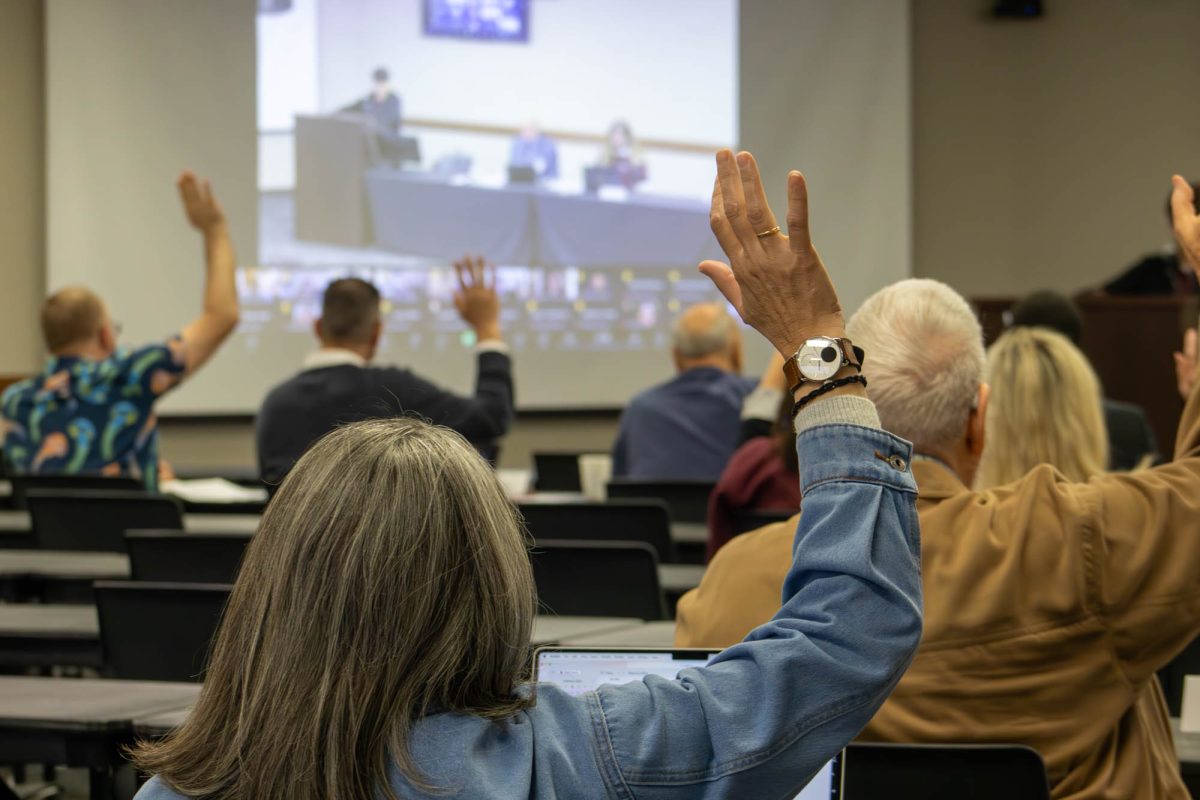What started as a class project grew into a more effective way to refrigerate and transport vaccines to remote villages in developing countries.
Four students in the Department of Mechanical Engineering turned heads with a mobile refrigeration system called the Coolbike.
Devesh Ranjan, assistant professor in the Department of Mechanical Engineering, assigned his thermal fluids class with a hands-on project in order to equip them with a better understanding of the concepts studied in class.
I wanted to give them a different perspective, Ranjan said. I tell them now that they are ready to go out in the industry. Lets try to do something that you will be proud of after leaving. All the while, I keep the project aimed at the benefit of developing countries.
The four students teamed up with the intention to construct a mobile refrigeration unit that would allow vaccines to be transported from distribution sites in developing countries to remote villages that normally would not have easy access to such aid. The cooling system is fastened to the back of a bicycle and is powered solely by pedaling.
Travis Schott, senior mechanical engineering major and one of the four students involved in the production of the Coolbike, said the mechanics of the device were based on familiar appliances.
The prototype is based on the vapor compression cycle, which is found in your refrigerator at home, industrial freezers and the AC unit in your car, Travis said. We actually pulled our unit out of an 89 Honda from Bryan Auto Recycling.
Travis and the team felt this was the most efficient approach to the project after much analysis.
Professor Ranjan actually had a group work on [the mobile refrigeration system] in a previous semester, Schott said. They used more of an electric approach, using a small generator on the back wheel which generated a current that ran to a thermoelectric device. It got to their target temperature in close to an hour. We wanted to do that faster.
The group not only wanted to make a self-sustaining cooling system, but also had to make sure it was time efficient.
Vaccines spoil if they arent stored at a certain temperature. The vaccine needs to be transported to a remote village without power 20 miles away from the distribution center. Because of this, Travis said, the current loss percentage is between 50 and 60 percent.
The Coolbike achieved a temperature difference of 10 to 15 degrees Celsius in a 10-minute time frame, pedaling the bike at an average speed of five miles per hour, a reasonable speed for a bike.
Another member of the team, senior mechanical engineering major Kathryn Aymond, said the project allowed her to apply her career skills to better the lives of others.
A lot of times we go through our engineering classes or technical classes learning a variety of concepts that we plan to apply once we start our career, Aymond said. This project allows us to begin applying those concepts now to affect the lives of other people who need our knowledge and expertise.
After improving the original prototype, the mechanical engineering students were not finished. Aymond and Schott established a new class so that they could continue perfecting the prototype.
Mechanical Engineering 491 counts as a technical elective toward our degree, but we are the only two students enrolled in the course, Schott said.
Methods of improvement are being evaluated and implemented to improve efficiency. Some of the enhancements of the new device include a lighter system, more flexible hoses and standardized construction materials. Upon these improvements the team will arrive closer to mass production.
Once this gets going, I would like to target the Bill and Melinda Gates Foundation for funding, Ranjan said. That is when we will focus on mass production.
Being that the second model is not yet complete, the potential of the innovation is unclear but Aymond and Schott are optimistic about the direction of the ongoing project and the realm of possibilities in front of them.
If you give me a math problem, I can do it, Schott said. But if you first make me write the math problem, I can do a lot more.
Engineers recalculate vaccine mobility
February 25, 2013

0
Donate to The Battalion
$2790
$5000
Contributed
Our Goal
Your donation will support the student journalists of Texas A&M University - College Station. Your contribution will allow us to purchase equipment and cover our annual website hosting costs, in addition to paying freelance staffers for their work, travel costs for coverage and more!
More to Discover







